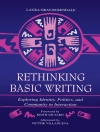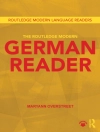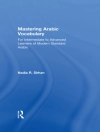In this innovative introduction to research in the social and human sciences, Valerie Malhotra Bentz and Jeremy J. Shapiro guide students through the maze of research traditions, cultures of inquiry, and epistemological frameworks that blanket the intellectual landscape. The goal of their approach is to help the researcher survive and flourish in today′s often confusing multicultural, multiparadigm research environment where disciplines overlap. Postmodernism and multiculturalism have shattered the traditional unitary model of scientific research; and the emerging global, informational economy is producing new economic, social, cultural, and political problems and new research questions. Their solution is mindful inquiry-empowering the researcher both psychologically and philosophically by putting the researcher, rather than research techniques, at the center of the research process. The mindful inquirer uses awareness of self-personal, social, and historical – to shape the research project or dissertation and keep it expressive and responsible to the traditions of scholarly research.
While grounding their own approach in a synthesis of critical theory, phenomenology, hermeneutics, and Buddhism, Bentz and Shapiro explain the forces that have produced the current epistemological crisis and introduce the reader to the underlying logic, rather than the detailed methods and techniques, of 10 cultures of inquiry-ethnography, quantitative behavioral science, phenomenology, action research, hermeneutics, evaluation research, feminist research, critical social science, historical-comparative research, and theoretical research. Mindful Inquiry in Social Research not only clarifies conceptual and intellectual traditions in research but also puts researchers squarely in the investigative saddle, able to choose, justify, and explain the intellectual framework and personal rationale of their research.
For many students, beginning researchers, and scholarly practitioners, Mindful Inquiry in Social Research will provide clarity, grounding, and good preparation for a challenging research task such as a dissertation, thesis, major paper, or professional research project. While helping the researcher survive epistemological diversity, it will also help turn the research project into a positive contribution to the researcher′s life and personal development, rather that a detour or a hindrance.
表中的内容
Research
The New Context and a New Approach
From Positivism to Postmodernity
The Mindful Inquirer as a Philosopher
Mindful Inquiry as the Basis for Scholarly Practice
Fundamentals of Mindful Inquiry
The Scholarly Practitioner
Facing the Loss of Identity through the Onslaught of the Information Age
The Cultures of Inquiry and Research Traditions
Phenomenological Inquiry
Hermeneutic Inquiry and Ethnography
Quantitative and Behavioral Science, Action Research and Evaluation Research
Comparative-Historical Inquiry and Theoretical Inquiry
Critical Social Science and Critical Social Theory
Conclusion and Magic Formulae
关于作者
Jeremy J. Shapiro, Ph D, is Professor Emeritus of Human and Organization Development at Fielding Graduate University. With a background in sociology, philosophy, information systems, and intellectual history, he has published in the area of critical social theory, with emphasis on the cultural and social impact of information technology and the aesthetics of music. He translated and introduced into the English-speaking world major works by Jürgen Habermas and Herbert Marcuse and has also translated writings of Theodor W. Adorno, Karl Mannheim, and Pierre Bourdieu. As an educator, he has specialized in the teaching of research, critical thinking, information literacy, and music listening as well as critical theory. He has also worked as an information systems professional for 15 years; been active nationally in efforts to use networked information resources and computer networks in higher education; published and presented on information literacy, the virtual university, and the social consequences of the Internet; and been involved in efforts to bring computer technology to community, grassroots, and nonprofit organizations. He has also taught peer counseling. He graduated from Harvard College under Robert Paul Wolff and Barrington Moore, Jr., studied philosophy and sociology with Max Horkheimer, Theodor Adorno, Herbert Marcuse, and Jürgen Habermas at the University of Frankfurt-am-Main and computer science with Abbe Mowshowitz at the City University of New York, and obtained his doctorate from Brandeis University under Kurt Wolff and Maurice Stein. His passions are classical music and travel. He lives in New York city with his wife Pamela Walsh and his cat Minou.












